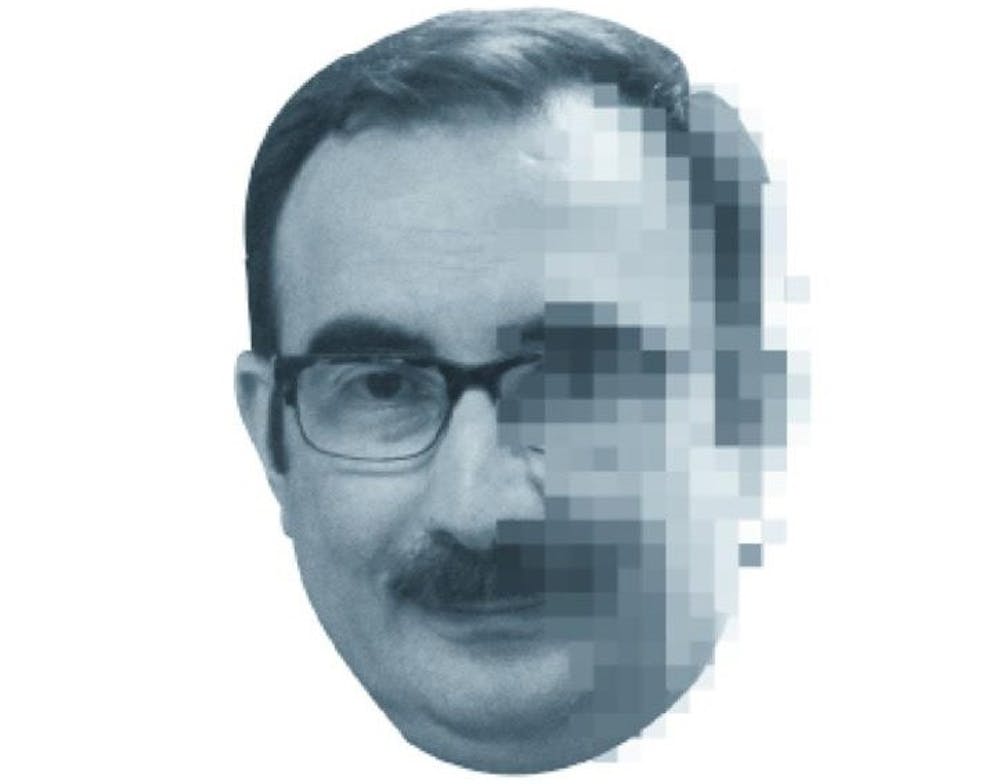He may never be able to return home. If he did return, he might be killed at a military checkpoint or by a bomb or missile. If he didn’t leave the country, he would be living in constant fear.
But the passage out of the conflict-torn country to become a professor at IU was only for Abdal-Razzaq Moaz, forcing him to leave behind his wife and two young children in Syria.
Risking arrest, Abdal-Razzaq entered Lebanon, spending four months waiting for a visa. On Jan. 31, he landed in Chicago, arriving in Bloomington the following day, allowing him to catch up on the news and return to his research. He was unable to do this during the past few years in Syria.
Just after he fled to the U.S., two major explosions went off near his wife’s family home, forcing Abdal-Razzaq’s father-in-law, wife, and children to flee. They now live in Cairo, Egypt. Abdal-Razzaq’s father-in-law told him by phone that they “really escaped death.”
His mother and sister still live in fear in Syria, facing the possibility of death every day. Because of this tie to his home country, Abdal-Razzaq has made it his duty to speak out about the violence and civil war in Syria, which has left hundreds of thousands dead. After more than two years of killing and no intervention to stop it, the time has come.
***
Abdal-Razzaq could not tolerate the situation in Damascus. The road to Arab International University, where he was acting dean and vice dean for academic and administrative affairs, was simply not safe. The Syrian regime’s military attacked the University, and soon the interior of the school was no longer safe. Everyone was moved from the campus to a hotel, but that was bombed too.
Conversations with his colleagues in Syria shifted from what was discussed in class to hearing about who was arrested or killed for no apparent reason. There are no longer many classes being taught, and if there are, they’re small. Many students and professors, like Abdal-Razzaq, have fled the country, meaning the end to most of their academic careers.
“It is a scary moment for Syrians,” Abdal-Razzaq says. “We didn’t see this kind of situation since the World War.”
***
Now, Abdal-Razzaq is between three worlds – the Syrian civil war, his family in Egypt, and his one year teaching fellowship in the U.S. Without the technology that exists today, Abdal-Razzaq would be stuck between these three worlds – unable to communicate with his family thousands of miles away and unable to stay connected with what is happening in his home country.
In many ways, Abdal-Razzaq is more in touch with Damascus than his family and friends still living there. Due to censorship by the regime, residents don’t know what is happening in the world around them. But thanks to Facebook, Skype, and networking with friends online, he is able to stay informed.
Communication in Syria is difficult — certain days the government simply shuts down the Internet in the country.
Like many, Abdal-Razzaq is just advocating for protection, seeking solutions from afar, and trying to get people, particularly the regime, to recognize the fact that their heritage is being threatened.
For many Syrians who are not party members, Abdal-Razzaq sought to escape through the first door he found. This door was the Institute of International Education’s Scholar Rescue Fund, which provides academic fellowships for scholars whose lives and work are threatened in their home countries that helped him obtain passage out of the country. Through the program, IU offered refuge. IU-Bloomington provost Lauren Robel says the University was pleased to offer IU as an academic safe haven for Abdal-Razzaq.
“His efforts to safeguard Syria’s cultural heritage and speak out on important issues in this volatile part of the world deserve our support and admiration, continuing a proud tradition of providing academic refugee at IU that dates back to World War II,” she says in a press release.
This fall, in addition to giving lectures about Syria, Abdal-Razzaq is teaching a course about the History of Islamic Architecture in the Middle East.
By necessity, his attention has become focused on the protection and preservation of the cultural heritage of Syria. He worked as deputy minister of culture and director general of the country’s antiquities and museums. His former students and other scholars of the area have created Facebook pages to track the events that have affected the country’s culture.
“I still wish to protect Syrian cultural heritage and am frustrated by the inability to find effective solutions,” Abdal-Razzaq says.






